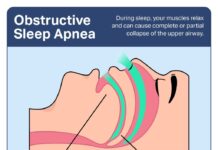Haemorrhoids, commonly referred to as piles, are vascular structures in the anal canal that aid in controlling bowel movements. When these structures become swollen or inflamed, they lead to the condition known as haemorrhoids. This medical issue can be categorized into internal and external haemorrhoids, based on their location.
Symptoms:
- Bleeding: One of the primary symptoms is rectal bleeding during bowel movements. Blood may be observed on toilet paper or in the toilet bowl.
- Pain or Discomfort: Individuals with it may experience pain or discomfort, particularly during bowel movements or when sitting for extended periods.
- Itching or Irritation: Itching in the anal region is common, accompanied by a sensation of irritation or discomfort.
- Swelling: External haemorrhoids can lead to visible swelling around the anal area.
- Prolapse: Internal haemorrhoids may protrude outside the anal opening, especially during bowel movements.
Causes:
- Straining during Bowel Movements: Constipation and excessive straining during bowel movements can lead to increased pressure on the blood vessels in the anal region, contributing to haemorrhoid development.
- Pregnancy: The increased pressure on the pelvic region during pregnancy can lead to haemorrhoids.
- Obesity: Excess weight can contribute to haemorrhoid formation due to increased pressure on the pelvic and rectal areas.
- Sedentary Lifestyle: Lack of physical activity can impede proper blood circulation and contribute to the development of haemorrhoids.
- Genetics: There is a genetic predisposition to haemorrhoids, and individuals with a family history may be more susceptible.
Treatment:
- Lifestyle Modifications: Encouraging dietary changes, including increased fiber intake and maintaining hydration, can alleviate symptoms by promoting regular bowel movements.
- Topical Treatments: Over-the-counter creams or ointments containing hydrocortisone can provide relief from itching and inflammation.
- Sitz Baths: Soaking the affected area in warm water (sitz baths) can help reduce swelling and promote healing.
- Medications: Oral medications, such as stool softeners or over-the-counter pain relievers, may be recommended to manage symptoms.
- Procedures: In severe cases, medical procedures like rubber band ligation, sclerotherapy, or surgical removal may be considered to address persistent or large haemorrhoids.
It is essential for individuals experiencing symptoms of haemorrhoids to seek medical advice for an accurate diagnosis and appropriate treatment plan. Persistent or severe cases may require the attention of a healthcare professional for comprehensive management.






























